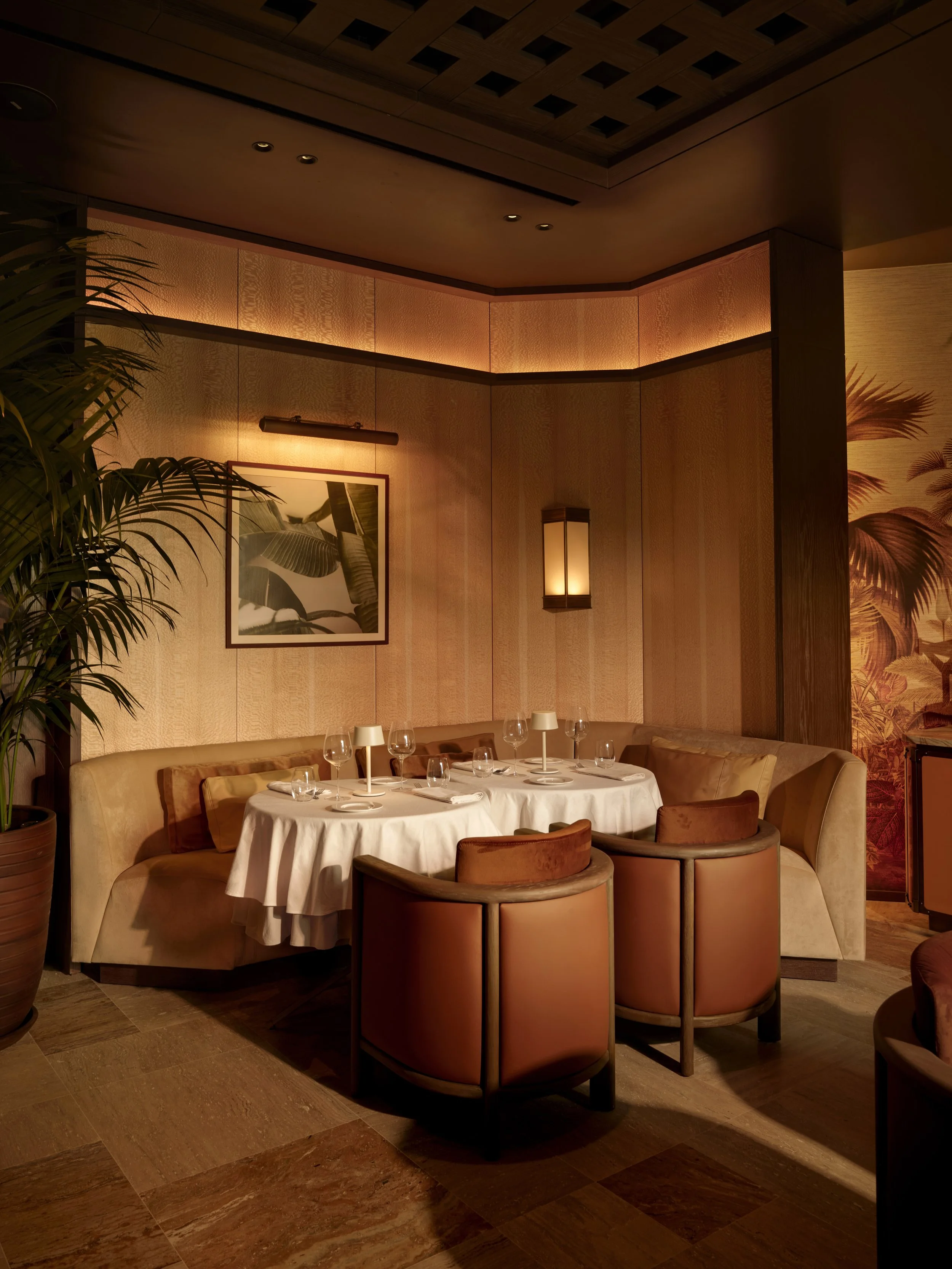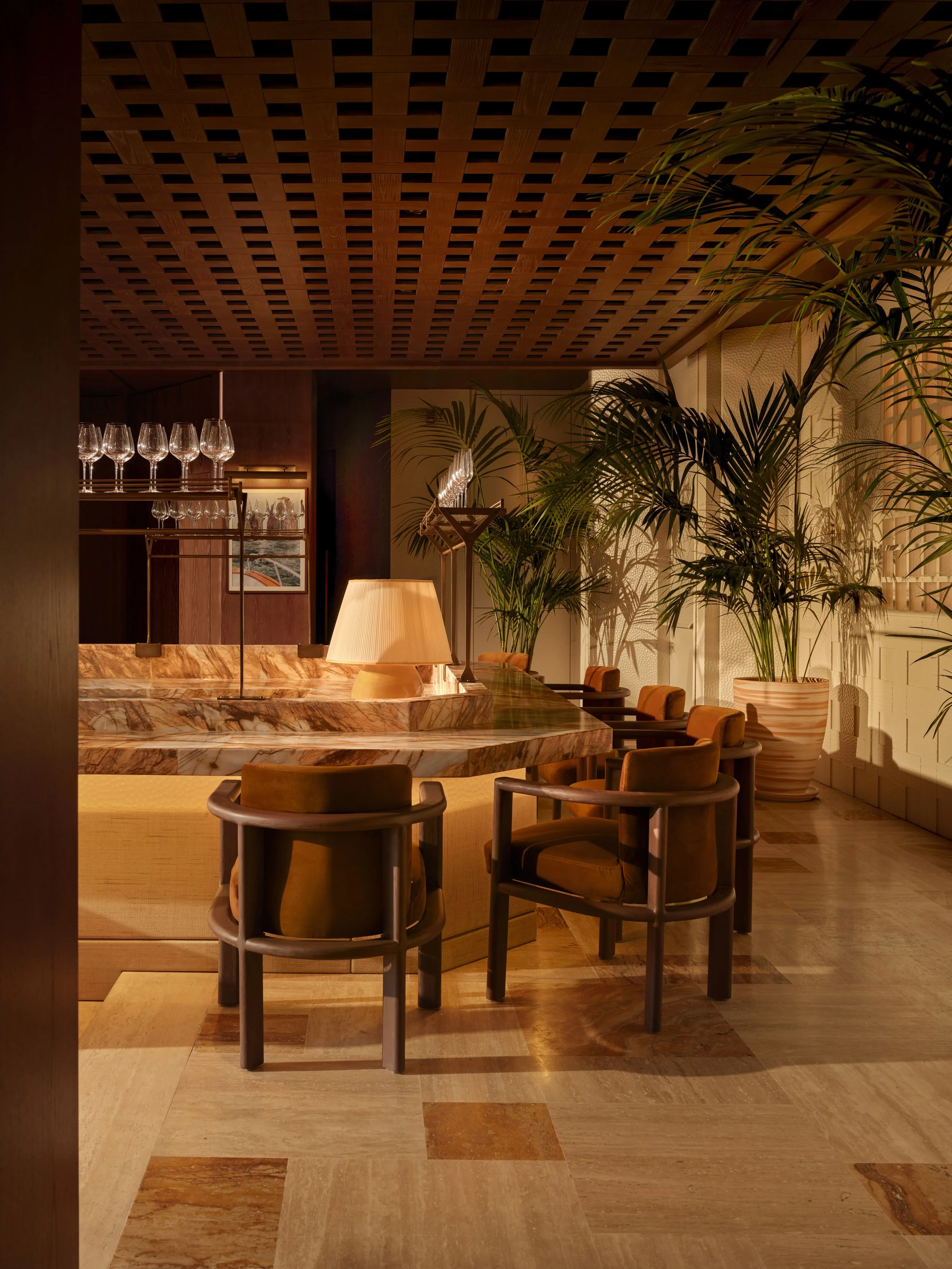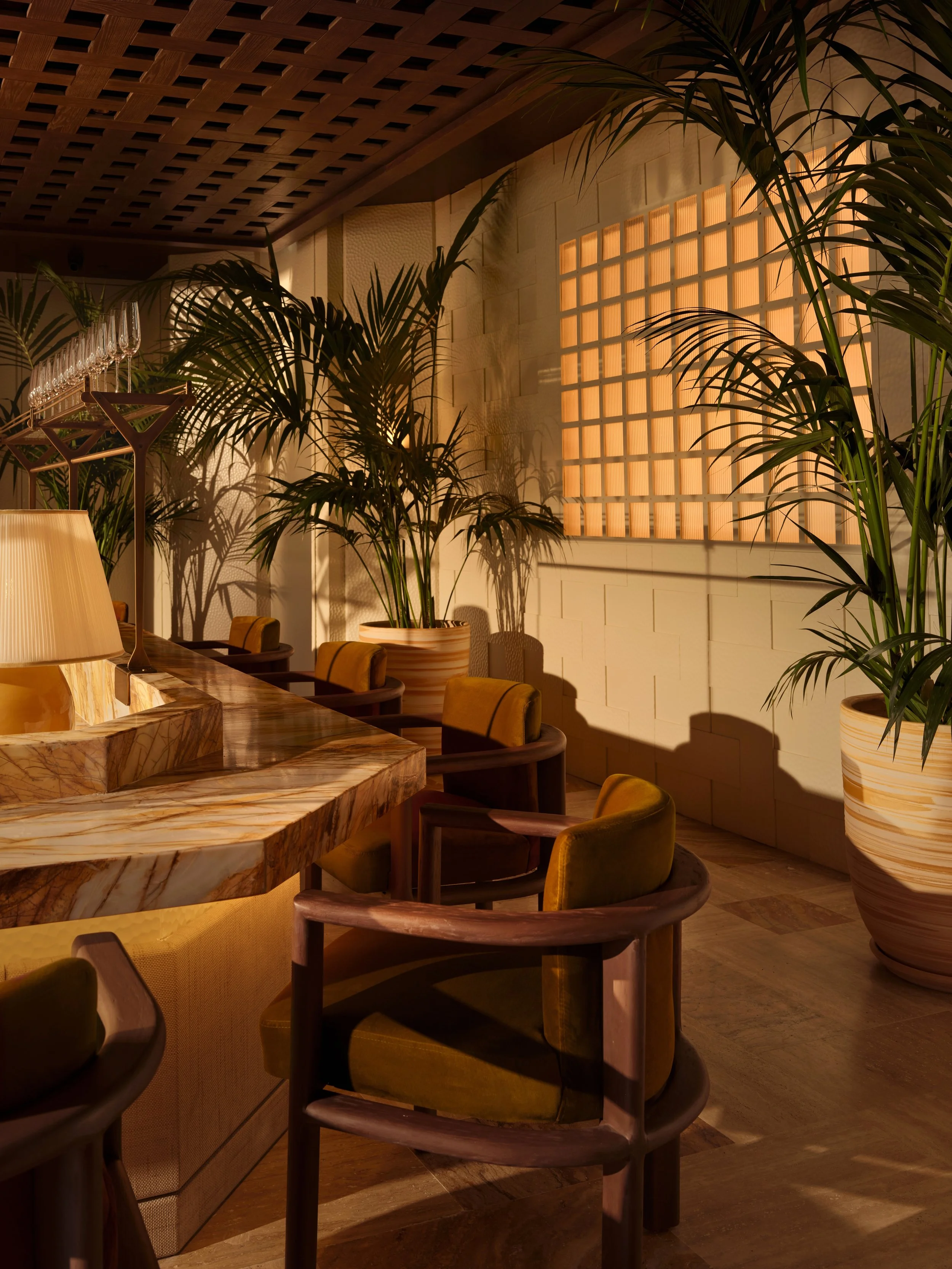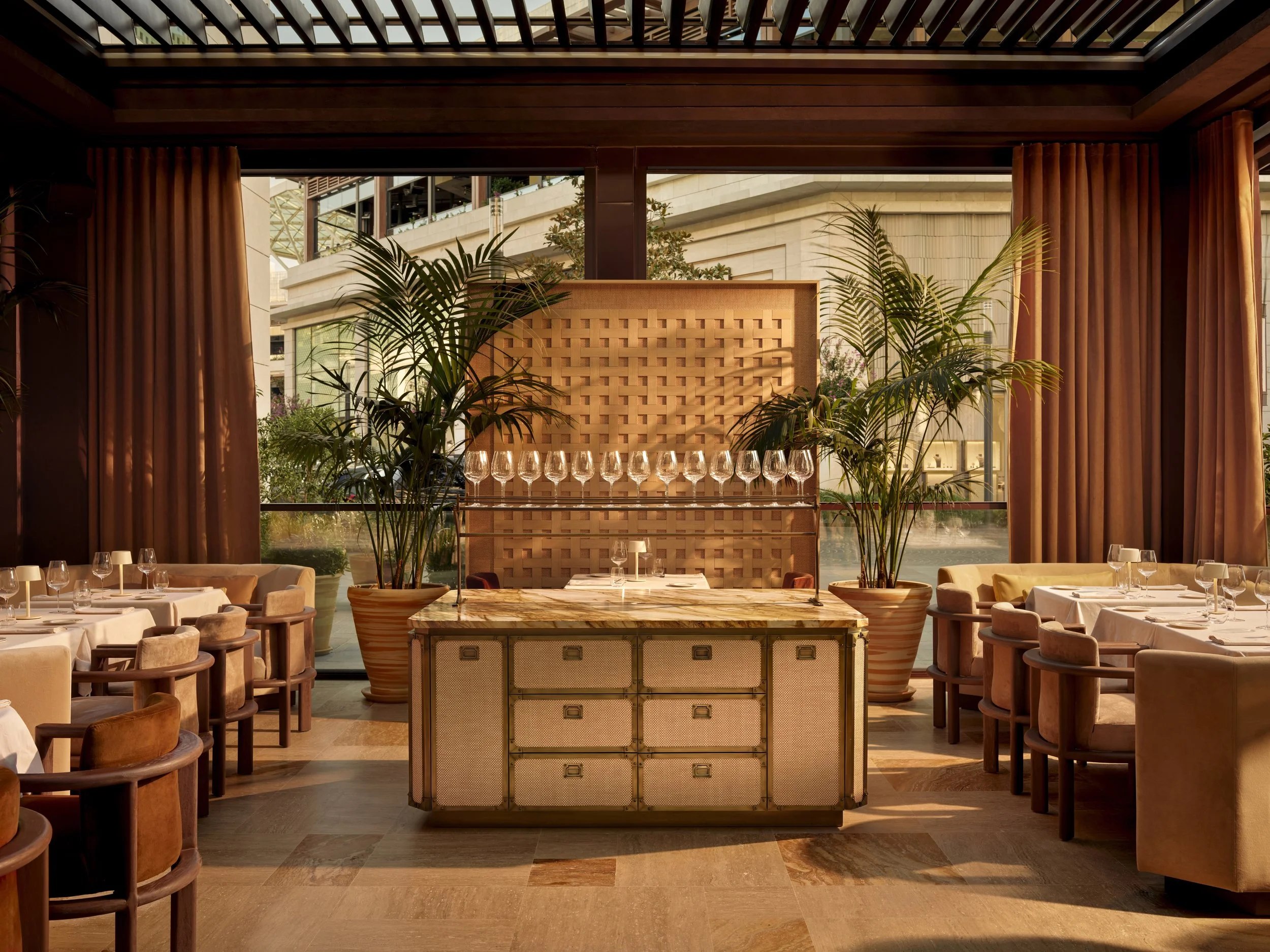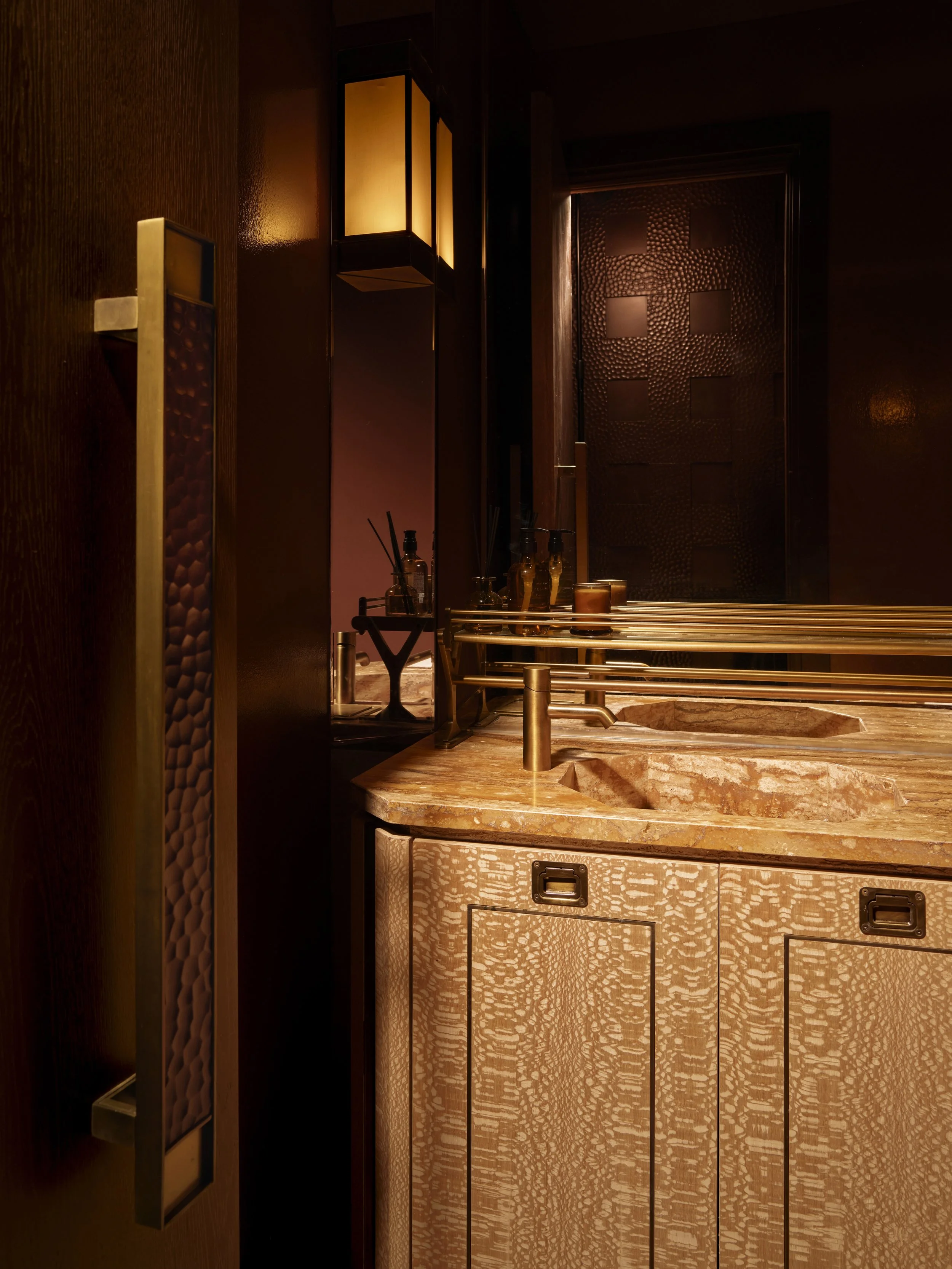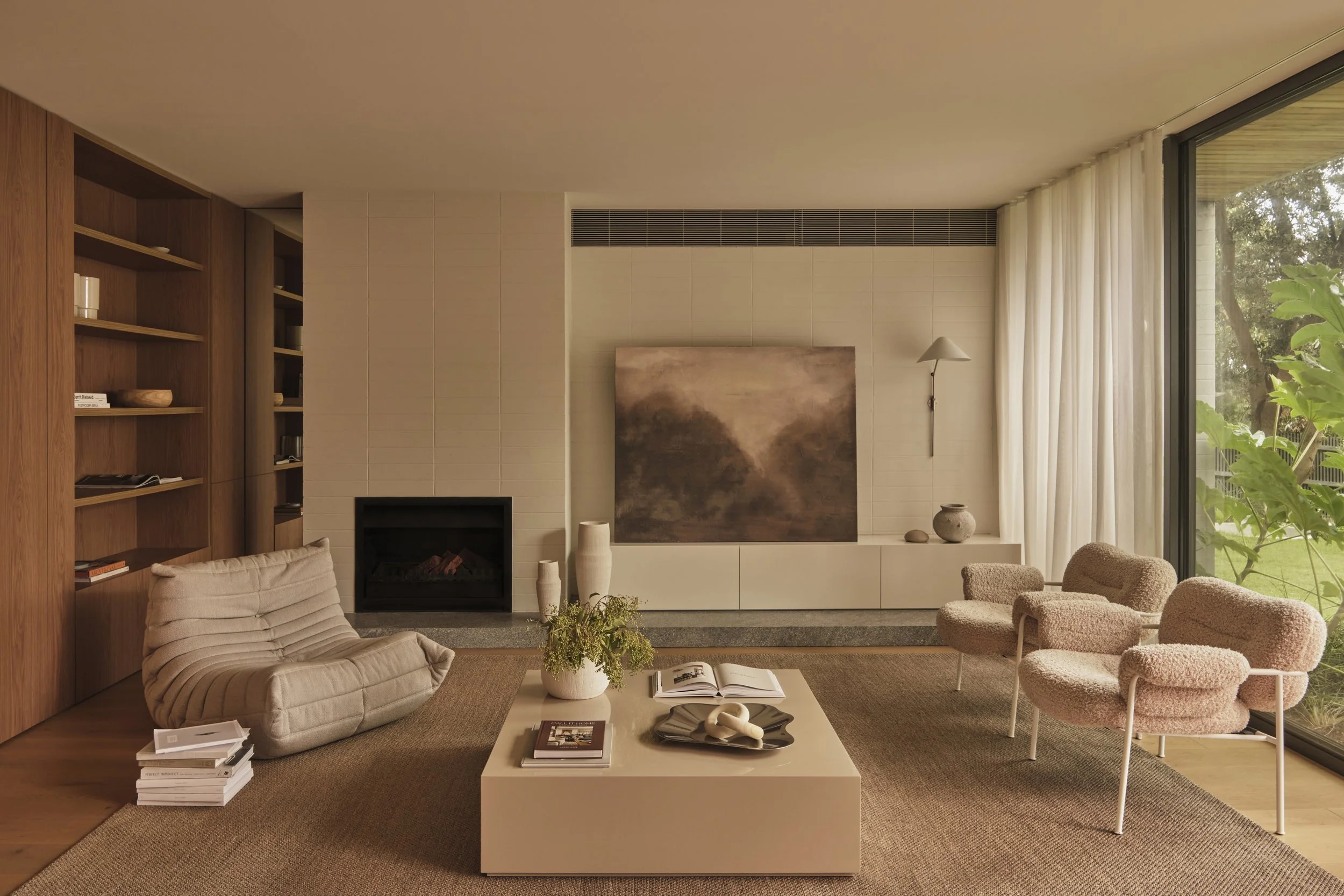
Esca by URBANJOBS
Conceived by Istanbul-based multidisciplinary studio URBANJOBS, the 189-seat restaurant channels the conviviality and restraint of Mediterranean culture through a refined interplay of stone, timber and plaster. Guided by the culinary vision of Michelin-starred chef Osman Sezener, Esca captures the essence of the Aegean coast – where the elegance of simplicity and the joy of gathering coexist in quiet balance.
Founded in 2017 by Murat Dede, URBANJOBS approaches spatial creation as an experiential craft defined by material character and sensory connection. Each project is conceived as a narrative of touch, light and form rather than a static composition. “Design is not merely about form; it is a proposition about how a space will be lived in and aged over time,” Dede explains. This ethos underpins the studio’s work across Istanbul’s most recognisable dining destinations, including the rising star Scalla, Batard, Momo Bebeköy and Clove, as well as international collaborations with restaurateurs such as Alan Yau and Obicà.
At Esca, URBANJOBS was commissioned to transform a shell-and-core unit within İzmir’s most active retail precinct into a space that transcends its commercial context. The studio inherited a site with irregular proportions and complex structural conditions—elements that became the catalyst for a reconfiguration grounded in proportion and flow. Through precise planning, the team resolved technical constraints to achieve a cohesive spatial sequence where dining areas, kitchen, and service functions integrate seamlessly.
The restaurant is experienced as a layered journey across four zones: an enclosed entry, a private dining room, a central bar and an expansive terrace. Guests enter through a sheltered windbreak that opens onto the main hall, where the eye is drawn toward the dual-level central bar—a sculptural anchor offering 360-degree access. This focal point establishes a visual and social connection between the interior and the terrace beyond, fostering a dialogue between enclosure and openness.
The terrace, conceived as the primary dining hall, is semi-covered and conceived to feel more like an indoor salon than a conventional open-air extension. Here, light filters through integrated shading, blurring the threshold between inside and outside. Flooring transitions are calibrated with care, and the spatial sequence encourages guests to move naturally from intimate zones to more communal settings. The effect is one of effortless continuity—each area distinct yet inherently connected.
Materiality serves as the backbone of Esca’s atmosphere. The palette is informed by the warmth of Mediterranean landscapes and İzmir’s coastal vernacular—soft plaster walls, warm wood tones, earthy stone hues and finely honed marble surfaces. Natural textures are balanced by subtle, refined finishes, achieving an understated luxury that mirrors Sezener’s culinary approach. Throughout the day, sunlight animates the terrace, while custom lighting compositions bring intimacy to the evening service. Illumination is carefully integrated into counters, shelving and bar joinery to highlight surface tactility and tonal nuance.
Every element within Esca was custom-crafted by URBANJOBS, from furniture and lighting to joinery and serving stations. The studio worked closely with local suppliers to source materials, reinforcing a commitment to sustainability and regional craftsmanship. Decorative accents remain minimal, allowing the material expression and spatial composition to convey character and identity.
This attention to atmosphere extends into the restaurant’s visual identity, developed by designer Cansu Merdamert in dialogue with the interior concept. “We began by shaping an atmosphere of light, texture and materiality, and from this, the brand identity emerged,” notes Dede. “The graphic language – its colours, logo and even the menu – was born from the space itself.”
Though deeply rooted in İzmir, Esca’s concept has been envisioned as a flexible model adaptable to new contexts. It stands as an embodiment of URBANJOBS’ approach: a synthesis of material precision, functional clarity and emotional resonance. More than a dining venue, Esca expresses how spatial composition can enhance the sensory experience of cuisine—creating a place that feels both timeless and contemporary, intimate yet expansive.
By grounding the restaurant in honest materials and the convivial spirit of the Mediterranean, URBANJOBS has crafted an environment where architecture, gastronomy and atmosphere converge with quiet confidence—a setting that celebrates the shared experience of dining, anchored in the essence of place.




